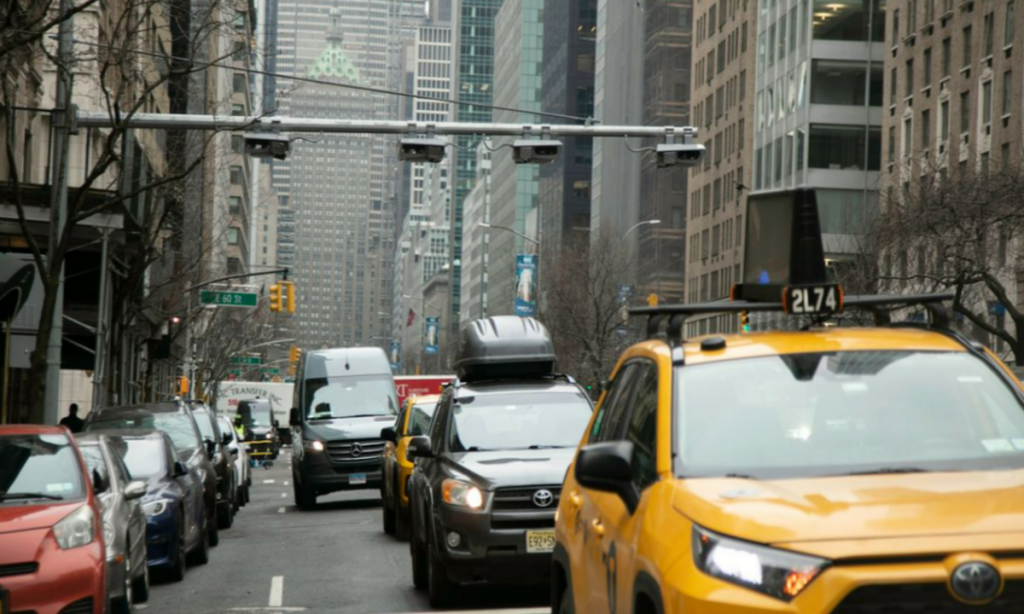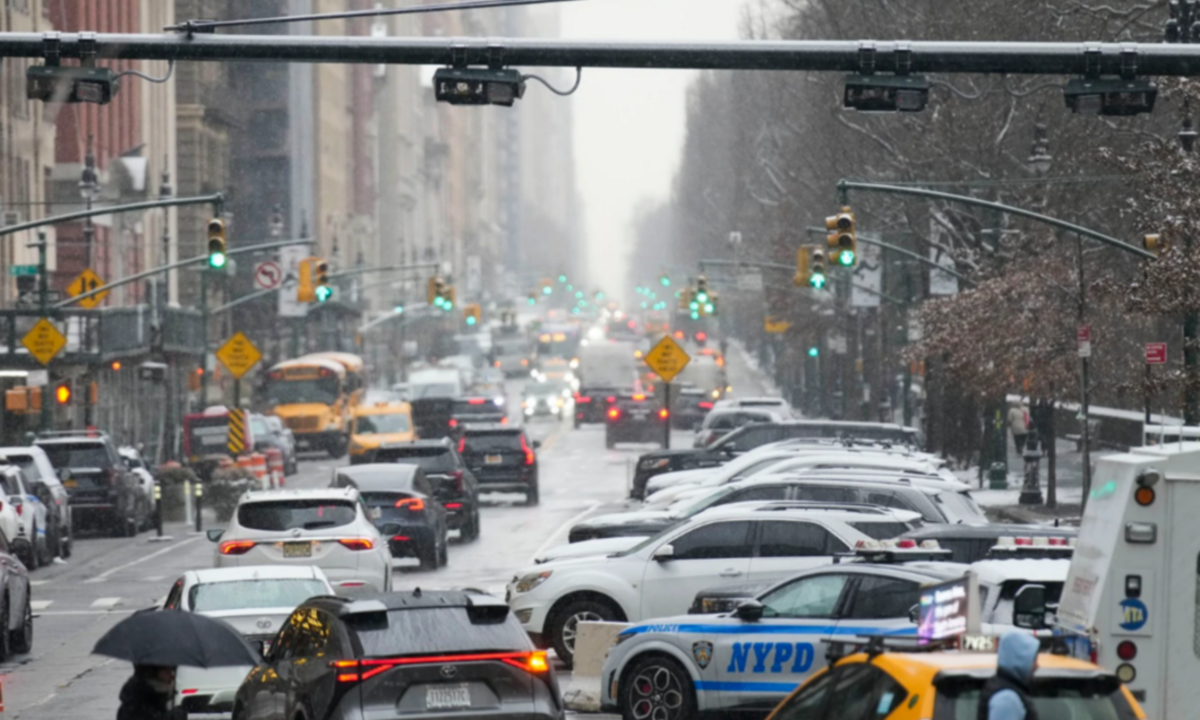In a significant policy shift, the Trump administration has rescinded federal approval for New York City’s congestion pricing program, a system designed to reduce traffic in Manhattan and fund public transportation improvements.
This decision, announced by U.S. Transportation Secretary Sean Duffy, has ignited a legal battle and sparked diverse reactions from political leaders and the public.
Federal Government Halts Congestion Pricing
The congestion pricing initiative, which began on January 5, 2025, imposed a $9 toll on most vehicles entering Manhattan south of 60th Street. Early reports indicated that the program led to a 9% reduction in traffic and improved bus speeds. However, Secretary Duffy criticized the toll as a financial burden on working-class Americans and small business owners, stating, “Every American should be able to access New York City regardless of their economic means. It shouldn’t be reserved for an elite few.”
In response to the federal directive, the Metropolitan Transportation Authority (MTA) swiftly filed a lawsuit to challenge the termination. MTA Chair and CEO Janno Lieber defended the program, highlighting its success in reducing congestion and enhancing public transit. He noted, “Traffic was down 9% in January, with 1.2 million fewer vehicles entering the central business district. Bus speeds are up, crashes are down, and pedestrian traffic in business areas has surged. This is working.”
Political Leaders React
Governor Kathy Hochul expressed strong opposition to the federal government’s decision, emphasizing New York‘s commitment to maintaining the congestion pricing system. She stated, “New York hasn’t labored under a king in over 250 years. We sure as hell are not going to start now.”
President Donald Trump, whose properties, including Trump Tower, are located within the congestion zone, celebrated the program’s termination. He declared on social media, “CONGESTION PRICING IS DEAD. Manhattan, and all … .”
Public and Political Responses
The decision to halt congestion pricing has elicited mixed reactions. Supporters of the program argue that it has effectively reduced traffic congestion and generated essential funding for public transit. City Comptroller Brad Lander noted, “Traffic is down, travel times have plummeted 30%, transit ridership has surged, and hundreds of millions of dollars are flowing to improve our subways and buses.”
Conversely, opponents, particularly from neighboring areas like New Jersey, have criticized the toll for its potential economic impact on commuters and businesses. New Jersey Governor Phil Murphy described the program as a “disaster” … and had previously sought its termination.
Legal and Future Implications
The MTA’s legal challenge sets the stage for a protracted battle over the future of congestion pricing in New York City. The outcome of this dispute could have significant implications for urban transportation policies nationwide, particularly those aimed at Federal reducing traffic congestion and promoting public transit funding.
As the situation develops, stakeholders from various sectors will be closely monitoring the legal proceedings and their potential impact on urban mobility and environmental initiatives.
Disclaimer—Our team has checked this article to ensure its accuracy and eliminate any misinformation. We are committed to providing clear and reliable information for our readers.


